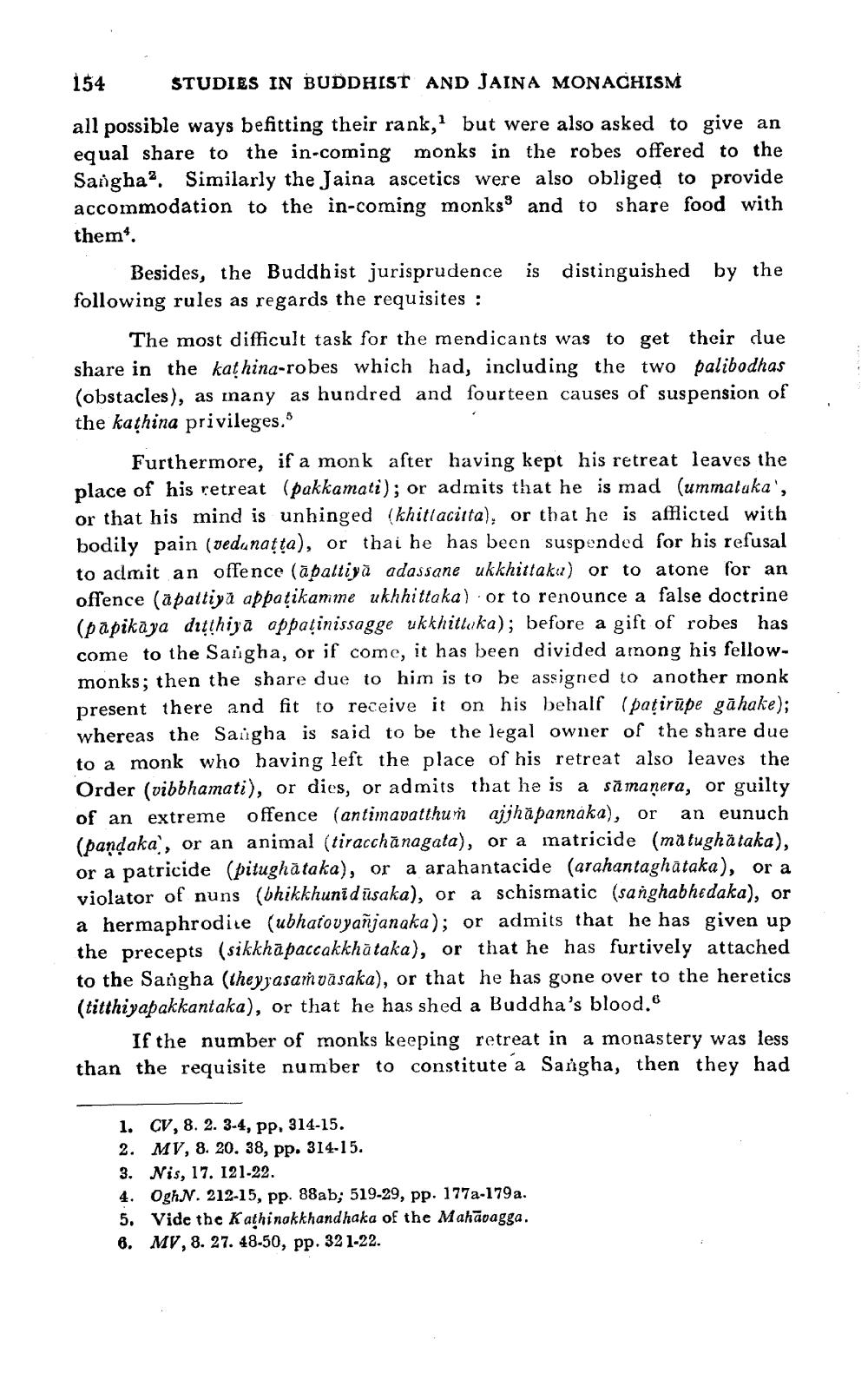________________
154 STUDIES IN BUDDHIST AND JAINA MONACHISM all possible ways befitting their rank, but were also asked to give an equal share to the in-coming monks in the robes offered to the Sanghaa. Similarly the Jaina ascetics were also obliged to provide accommodation to the in-coming monks and to share food with them.
Besides, the Buddhist jurisprudence is distinguished by the following rules as regards the requisites :
The most difficult task for the mendicants was to get their due share in the kathina-robes which had, including the two palibodhas (obstacles), as many as hundred and fourteen causes of suspension of the kațhina privileges.
Furthermore, if a monk after having kept his retreat leaves the place of his retreat (pakkamati); or admits that he is mad (ummataka', or that his mind is unhinged (khitlacista), or that he is afflicted with bodily pain (vedunatta), or thai he has been suspended for his refusal to admit an offence (āpaltiya adassane ukkhittaku) or to atone for an offence (apattiyà appaţikamme ukhhittaka) or to renounce a false doctrine (apikāya ditthiya appatinissagge ukkhittaka); before a gift of robes has come to the Saligha, or if come, it has been divided among his fellowmonks; then the share due to him is to be assigned to another monk present there and fit to receive it on his behalf (patirüpe gāhake); whereas the Sangha is said to be the legal owner of the share due to a monk who having left the place of his retreat also leaves the Order (vibbhamati), or dies, or admits that he is a să manera, or guilty of an extreme offence (antimavatthur ajjhăpannaka), or an eunuch (pandaka, or an animal (tiracchanagata), or a matricide (matughataka), or a patricide (pitughătaka), or a arahantacide (arahantaghataka), or a violator of nuns (bhikkhuni dusaka), or a schismatic (sanghabhedaka), or a hermaphrodite (ubhaiovyañjanaka); or admits that he has given up the precepts (sikkhā paccakkhătaka), or that he has furtively attached to the Sangha (theyjasamvāsaka), or that he has gone over to the heretics (titthiyapakkantaka), or that he has shed a Buddha's blood.
If the number of monks keeping retreat in a monastery was less than the requisite number to constitute a Sangha, then they had
1. CV, 8. 2. 3-4, pp, 314-15. 2. MV, 8. 20. 38, pp. 314-15. 3. Nis, 17. 121-22. 4. OgħN. 212-15, pp. 88ab; 519-29, pp. 1772-179a. 5. Vide the Kathinakkhandhaka of the Mahāvagga. 6. MV, 8. 27. 48-50, pp. 32 1-22.




